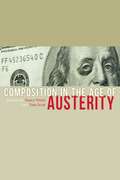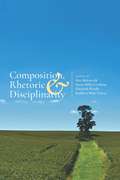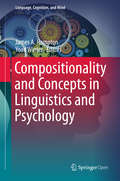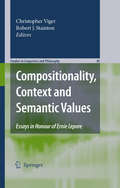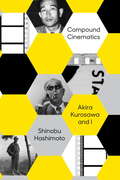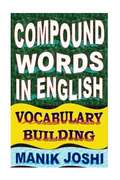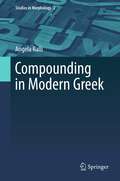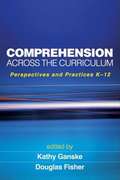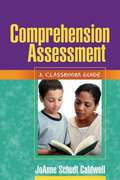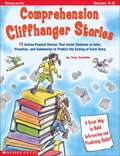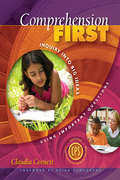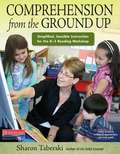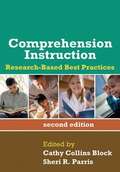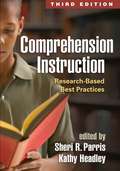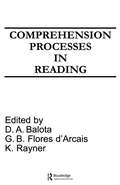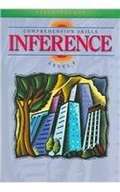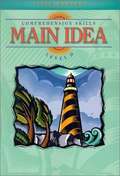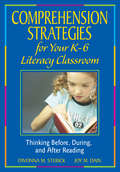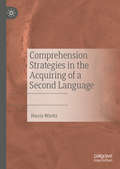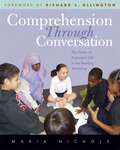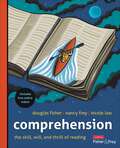- Table View
- List View
Composition in the Age of Austerity
by Nancy Welch & Tony ScottIn the face of the gradual saturation of US public education by the logics of neoliberalism, educators often find themselves at a loss to respond, let alone resist. Through state defunding and many other “reforms” fueled by austerity politics, a majority of educators are becoming casual labor in US universities while those who hang onto secure employment are pressed to act as self-supporting entrepreneurs or do more with less. Focusing on the discipline of writing studies, this collection addresses the sense of crisis that many educators experience in this age of austerity. The chapters in this book chronicle how neoliberal political economy shapes writing assessments, curricula, teacher agency, program administration, and funding distribution. Contributors also focus on how neoliberal political economy dictates the direction of scholarship, because the economic and political agenda shaping the terms of work, the methods of delivery, and the ways of valuing and assessing writing also shape the primary concerns and directions of scholarship. Composition in the Age of Austerity offers critical accounts of how the restructuring of higher education is shaping the daily realities of composition programs. The book documents the effects and implications of the current restructuring, examines how cherished rhetorical ideals actually leave the field unprepared to respond effectively to defunding and corporatizing trends, and establishes points of departure for collective response.
Composition with Vocabulary and Spelling IV
by ChapmanThis work text demonstrates the importance of structure and clarity. Focused on advancing students' writing, straightforward examples and step-by-step exercises guide students through drafting concise and coherent essays. Because choosing the correct words for written projects is vital, the text also includes twenty units of spelling/vocabulary lists. With twenty spelling words and twelve vocabulary words, each list focuses on Greek and Latin prefixes or roots, geographic locations, and specialized fields, such as history, fine arts, or sciences.
Composition, Rhetoric, and Disciplinarity
by Rita Malenczyk, Susan Miller-Cochran, Elizabeth Wardle, and Kathleen Blake YanceyEdited by four nationally recognized leaders of composition scholarship, Composition, Rhetoric, and Disciplinarity asks a fundamental question: can Composition and Rhetoric, as a discipline, continue its historical commitment to pedagogy without sacrificing equal attention to other areas, such as research and theory? In response, contributors to the volume address disagreements about what it means to be called a discipline rather than a profession or a field; elucidate tensions over the defined breadth of Composition and Rhetoric; and consider the roles of research and responsibility as Composition and Rhetoric shifts from field to discipline. Outlining a field with a complex and unusual formation story, Composition, Rhetoric, and Disciplinarity employs several lenses for understanding disciplinarity—theory, history, labor, and pedagogy—and for teasing out the implications of disciplinarity for students, faculty, institutions, and Composition and Rhetoric itself. Collectively, the chapters speak to the intellectual and embodied history leading to this point; to questions about how disciplinarity is, and might be, understood, especially with regard to Composition and Rhetoric; to the curricular, conceptual, labor, and other sites of tension inherent in thinking about Composition and Rhetoric as a discipline; and to the implications of Composition and Rhetoric’s disciplinarity for the future. Contributors: Linda Adler-Kassner, Elizabeth H. Boquet, Christiane Donahue, Whitney Douglas, Doug Downs, Heidi Estrem, Kristine Hansen, Doug Hesse, Sandra Jamieson, Neal Lerner, Jennifer Helene Maher, Barry Maid, Jaime Armin Mejía, Carolyn R. Miller, Kelly Myers, Gwendolynne Reid, Liane Robertson, Rochelle Rodrigo, Dawn Shepherd, Kara Taczak
Compositionality and Concepts in Linguistics and Psychology (Language, Cognition, and Mind #3)
by James A. Hampton Yoad WinterBy highlighting relations between experimental and theoretical work, this volume explores new ways of addressing one of the central challenges in the study of language and cognition. The articles bring together work by leading scholars and younger researchers in psychology, linguistics and philosophy. An introductory chapter lays out the background on concept composition, a problem that is stimulating much new research in cognitive science. Researchers in this interdisciplinary domain aim to explain how meanings of complex expressions are derived from simple lexical concepts and to show how these meanings connect to concept representations. Traditionally, much of the work on concept composition has been carried out within separate disciplines, where cognitive psychologists have concentrated on concept representations, and linguists and philosophers have focused on the meaning and use of logical operators. This volume demonstrates an important change in this situation, where convergence points between these three disciplines in cognitive science are emerging and are leading to new findings and theoretical insights. This book is open access under a CC BY license.
Compositionality, Context and Semantic Values: Essays in Honour of Ernie Lepore (Studies in Linguistics and Philosophy #85)
by Robert J. Stainton Christopher VigerAre natural languages genuinely compositional? What roles does context play in linguistic communication, and by what means? In particular, does context interfere with the compositional determination of truth conditions? What meanings should theorists assign to sentences if compositionality is to be retained? These are the central questions of this important volume of new philosophical essays in honour of Ernie Lepore.
Compound Cinematics
by Shinobu HashimotoAny list of Japan's greatest screenplay writers would feature Shinobu Hashimoto at or near the top. This memoir, focusing on his collaborations with Akira Kurosawa, a gifted scenarist in his own right, offers indispenable insider account for fans and students of the director's oeuvre and invaluable insights into the unique process that is writing for the screen. The vast majority of Kurosawa works were filmed from screenplays that the director co-wrote with a stable of steller writers, many of whom he discovered himself with his sharp eye for all things cinematic. Among these was Hashimoto, who caught the filmmaker's attention with a script that eventually turned into Roshamon. Thus joining Team Kurosawa the debutant immediately went on to paly an integral part in developing and writing two of the grandmaster's most impressive achievements, Ikiru and Seven Samurai.
Compound Words in English: Vocabulary Building (English Word Power #10)
by Manik JoshiThis Book is aimed at those who realize the power of English and want to learn it sincerely.
Compounding in Modern Greek (Studies in Morphology #2)
by Angela RalliOne of the core challenges in linguistics is elucidating compounds--their formation as well as the reasons their structure varies between languages. This book on Modern Greek rises to the challenge with a meticulous treatment of its diverse, intricate compounds, a study as grounded in theory as it is rich in data. Enhancing our knowledge of compounding and word-formation in general, its exceptional scope is a worthy model for linguists, particularly morphologists, and offers insights for students of syntax, phonology, dialectology and typology, among others. The author examines first-tier themes such as the order and relations of constituents, headedness, exocentricity, and theta-role saturation. She shows how Modern Greek compounding relates to derivation and inflection, and charts the boundaries between compounds and phrases. Exploring dialectically variant compounds, and identifying historical changes, the analysis extends to similarly formed compounds in wholly unrelated languages.
Comprehension Across the Curriculum
by Douglas Fisher Kathy GanskeSuccessful students use comprehension skills and strategies throughout the school day. In this timely book, leading scholars present innovative ways to support reading comprehension across content areas and the full K 12 grade range. Chapters provide specific, practical guidance for selecting rewarding texts and promoting engagement and understanding in social studies, math, and science, as well as language arts and English classrooms. Cutting-edge theoretical perspectives and research findings are clearly explained. Special attention is given to integrating out-of-school literacies into instruction and developing comprehension in English language learners.
Comprehension Assessment
by Joanne Caldwell Nancy FreyHow can busy teachers successfully manage the complex task of assessing their students' reading comprehension? This invaluable book--the first stand-alone guide on the topic--presents reliable, research-supported guidelines and procedures for K-6 teachers to use in the classroom. Through practical tips and realistic examples, the book demonstrates time-saving ways to implement and adapt a wide range of existing assessments, rather than creating new ones. Also covered are strategies for conducting multiliteracy assessments, using classroom assessment to complement standardized testing, accommodating response-to-intervention mandates, and linking assessment to content-area instruction.
Comprehension Cliffhanger Stories: 15 Action-Packed Stories That Invite Students to Infer, Visualize, and Summarize to Predict the Ending of Each Story
by Tom ConklinThis ready-to-use resource gives teachers 15 kid-pleasing stories that are perfect for building essential reading skills such as predicting, making inferences, summarizing, and more. For each reproducible story, teachers will find a companion teacher page with vocabulary-building tips, reading strategy suggestions, and thought-provoking writing and discussion prompts. For use with Grades 4-8.
Comprehension First: Inquiry into Big Ideas Using Important Questions
by Claudia E CornettThis book is about designing instruction that makes comprehension the priority in reading and in content area study. The comprehension model described responds to calls from literacy experts and professional organizations for inquiry-based instruction that prepares readers to be active meaning makers who are adept at both critical and creative thinking. Comprehension First introduces a before, during, after Comprehension Problem Solving (CPS) process that helps readers ask key questions so they arrive at a substantial comprehension product-"big ideas" based on themes and conclusions drawn from literary works and expository texts. The book further describes how to orchestrate research-based best practices to build lessons and units around big ideas and important questions. In this age of multiple literacies, all of us must learn to be more nimble users of Literacy 2.0 communication tools. Mastering problem solving is at the core of this challenge. Comprehension First embraces this challenge by inviting present and future teachers to examine WHY and HOW these tools can be used more purposefully to achieve the pre-eminent literacy goal of deep comprehension.
Comprehension From The Ground Up: Simplified, Sensible Instruction For The K-3 Reading Workshop
by Peter Cunningham Sharon Taberski Donnelly Marks John VidelerSharon Taberski cuts through the pressurized, strategy-overloaded, fluency-crazed atmosphere surrounding reading instruction to lay out the reading and writing workshop practices that are most effective in developing readers in the primary grades. She shares the daily how-tos needed to sustain a literacy block that engages children in authentic reading and writing practices including dozens of effective practices that illustrate amazing ways to organize instructional and independent reading for kids.
Comprehension Instruction, Second Edition
by Cathy Collins Block Sheri ParrisThis comprehensive professional resource and text is based on cutting-edge research. In each chapter, leading scholars provide an overview of a particular aspect of comprehension, offer best-practice instructional guidelines and policy recommendations, present key research questions still to be answered, and conclude with stimulating questions for individual study or discussion. Coverage includes such timely topics as differentiated instruction, technology and reading comprehension, teaching English language learners, and the implications of current neuroscientific findings.
Comprehension Instruction, Third Edition
by Lesley Mandel Morrow Sheri R. Parris Kathy HeadleyAll key issues of research and practice in comprehension instruction are addressed in this highly regarded professional resource and course text. Leading scholars examine the processes that enable students to make meaning from what they read--and how this knowledge can be applied to improve teaching at all grade levels. Best practices for meeting the needs of diverse elementary and secondary students are identified. Essential topics include strategies for comprehending different types of texts, the impact of the Common Core State Standards (CCSS), cutting-edge assessment approaches, and the growing importance of digital genres and multimodal literacies. User-friendly features include end-of-chapter discussion questions. New to This Edition *Incorporates the latest research and instructional practices. *Chapters on the CCSS, critical theory, culturally responsive instruction, and response to intervention. *Chapters on teaching fiction and informational texts in the secondary grades. *Expanded coverage of multimodal literacy learning. *Timely topics such as text complexity, close reading, digital literacies, and neuroscience are discussed in multiple chapters.
Comprehension Processes in Reading
by D. A. Balota G. B. Flores d’Arcais K. RaynerComprehension Processes in Reading addresses the interrelationship among several areas relevant to understanding how people comprehend text. The contributors focus on the on-line processes associated with text understanding rather than simply with the product of that comprehension -- what people remember from reading. Presenting the latest theories and research findings from a distinguished group of contributors, Comprehension Processes in Reading is divided into four major sections. Each section, concluding with a commentary chapter, discusses a different aspect of reader understanding or dysfunction such as individual word comprehension, sentence parsing, text comprehension, and comprehension failures and dyslexia .
Comprehension Skills: Facts (Level D)
by Tara Mccarthy Linda Ward Beech Donna TownsendThis book asks questions about facts in stories.The stories will have the answers one needs for the questions.
Comprehension Skills: Inference (Level D)
by The Editors at the Steck-VaughnAn inference is a guess you make after thinking about what you already know. In this book the readers will make inferences about stories.
Comprehension Skills: Main Idea, Level D
by Tara Mccarthy Linda Ward Beech Donna TownsendThis book asks you to find the main idea of paragraphs and has 25 units with 5 stories in each unit providing Hints for Better Reading, Challenge Yourself and Writing.
Comprehension Skills: Sequence (Level D)
by Linda Ward Beech Donna Townsend Tar A MccarthyIf several things happen in a story, they happen in a sequence. This book asks questions about sequence in stories and helps in looking for time words.
Comprehension Strategies for Your K-6 Literacy Classroom: Thinking Before, During, and After Reading
by Divonna M. Stebick Joy M. DainCombining theory with classroom research, this research-based handbook clearly illustrates how teachers can effectively use six critical strategies to enhance students' reading comprehension.
Comprehension Strategies in the Acquiring of a Second Language
by Harris WinitzThis book provides a critical analysis and account of the development of the Comprehension Approach as a method for language learning. The author draws on interrelated sub-fields - including linguistic theory, child language acquisition, and educational technology - to examine how a comprehension-based strategy could have pedagogical potential for adult second language learning. While second language pedagogy has to date been dominated by production models, this book takes another look at the Comprehension Approach as a possible alternative, presenting results from both child first language and adult second language contexts. It will be of interest to psycholinguistics and applied linguistics scholars, particularly those with an interest in second language teaching and learning.
Comprehension Through Conversation: The Power of Purposeful Talk in the Reading Workshop (CrossCurrents Series)
by Richard L Allington Maria NicholsComprehension Through Conversation: The Power of Purposeful Talk in the Reading Workshop (CrossCurrents Series) 1st Edition
Comprehension [Grades K-12]: The Skill, Will, and Thrill of Reading (Corwin Literacy)
by Douglas Fisher Nancy Frey Nicole V. LawRadically change the way students learn from texts, extending beyond comprehension to critical reasoning and problem solving. Is your reading comprehension instruction just a pile of strategies? There is no evidence that teaching one strategy at a time, especially with pieces of text that require that readers use a variety of strategies to successfully negotiate meaning, is effective. And how can we extend comprehension beyond simple meaning? Bestselling authors Douglas Fisher, Nancy Frey, and Nicole Law propose a new, comprehensive model of reading instruction that goes beyond teaching skills to fostering engagement and motivation. Using a structured, three-pronged approach—skill, will, and thrill—students learn to experience reading as a purposeful act and embrace struggle as a natural part of the reading process. Instruction occurs in three phases: Skill. Holistically developing skills and strategies necessary for students to comprehend text, such as monitoring, predicting, summarizing, questioning, and inferring. Will. Creating the mindsets, motivations, and habits, including goal setting and choice, necessary for students to engage fully with texts. Thrill. Fostering the thrill of comprehension, so that students share their thinking with others or use their knowledge for something else. Comprehension is the structured framework you need to empower students to comprehend text and take action in the world.
Comprehension [Grades K-12]: The Skill, Will, and Thrill of Reading (Corwin Literacy)
by Douglas Fisher Nancy Frey Nicole V. LawRadically change the way students learn from texts, extending beyond comprehension to critical reasoning and problem solving. Is your reading comprehension instruction just a pile of strategies? There is no evidence that teaching one strategy at a time, especially with pieces of text that require that readers use a variety of strategies to successfully negotiate meaning, is effective. And how can we extend comprehension beyond simple meaning? Bestselling authors Douglas Fisher, Nancy Frey, and Nicole Law propose a new, comprehensive model of reading instruction that goes beyond teaching skills to fostering engagement and motivation. Using a structured, three-pronged approach—skill, will, and thrill—students learn to experience reading as a purposeful act and embrace struggle as a natural part of the reading process. Instruction occurs in three phases: Skill. Holistically developing skills and strategies necessary for students to comprehend text, such as monitoring, predicting, summarizing, questioning, and inferring. Will. Creating the mindsets, motivations, and habits, including goal setting and choice, necessary for students to engage fully with texts. Thrill. Fostering the thrill of comprehension, so that students share their thinking with others or use their knowledge for something else. Comprehension is the structured framework you need to empower students to comprehend text and take action in the world.
